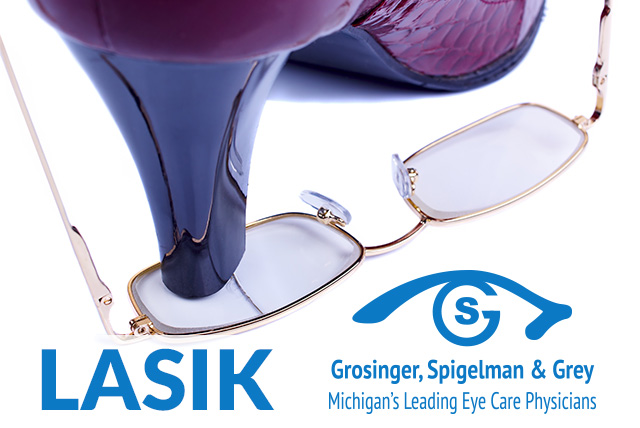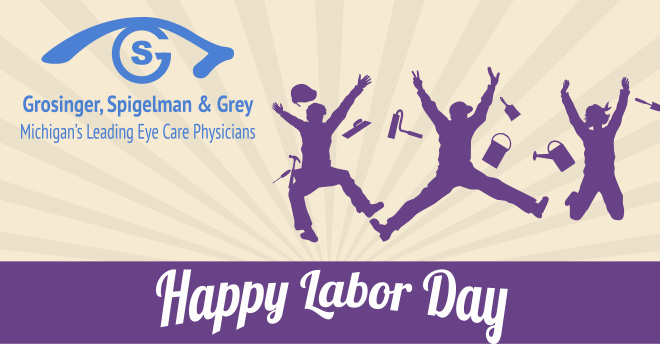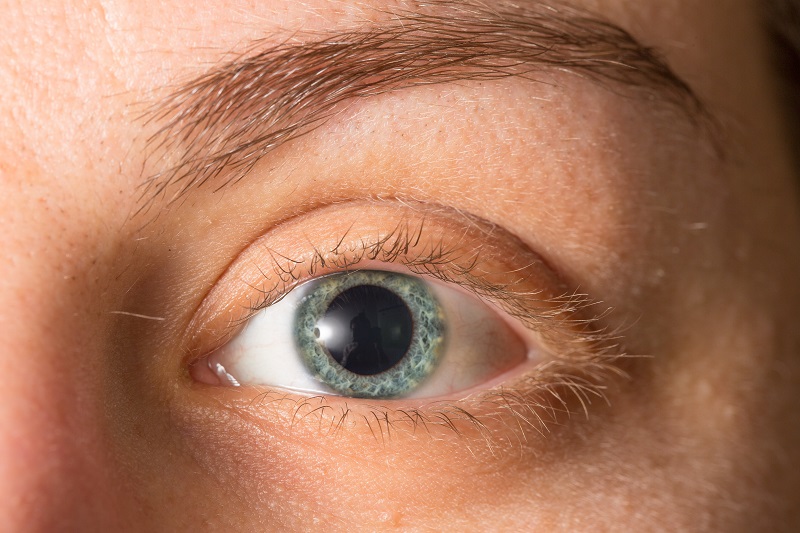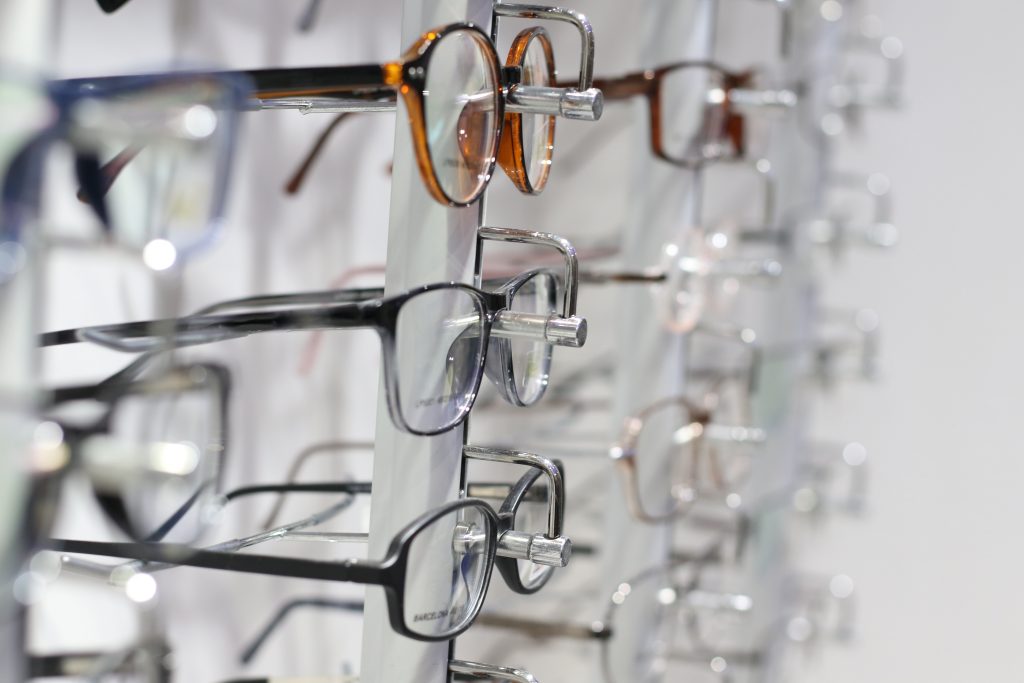Big Milestones Deserve Great Rewards

Congratulations if you are the proud parent or grandparent of a college graduate! We know this is a big milestone and one to be celebrated. Gift your student with LASIK, the popular vision correction procedure, so they can throw their contacts and prescription lenses away and start their next phase in life with clarity and confidence. Contact our office to see if your student is a candidate. Learn more.
What Happens During a LASIK Consultation?

If you’re thinking about having LASIK to improve your vision, you’ll first need to undergo a consultation to ensure you are a good candidate for the surgery. We first will conduct a thorough, dilated eye exam. During this exam, the overall health of your eyes will be assessed to ensure you do not have any problems that would preclude you from having LASIK.
While your eyes are dilated, we will measure your prescription in order to understand your visual potential. We will also assess the relationship between your two eyes in a binocular vision test. For optimal results after LASIK, both eyes need to be properly aligned and working together. Another screening test will be performed to gauge the quality and quantity of your tears; for patients with dry eyes, we may recommend treatment to improve your tear production before proceeding with surgery.
You will also undergo a variety of corneal measurements to ensure your cornea is a shape and thickness suitable for LASIK. If you wear contact lenses, you will need to leave them out for several weeks before corneal measurements are taken in order to ensure accurate results.
If you are considering LASIK eye surgery to improve your vision, contact the eye care specialists at Grosinger, Spigelman, and Grey in Bloomfield Hills, Michigan to set up your consultation visit. You may also visit our website and take a self-evaluation vision correction test.
Am I a Good Candidate for LASIK Surgery?

LASIK surgery for vision correction is a wonderful option for most people. However, not everyone is a good candidate. Below are some of the requirements to determine if LASIK may be the right choice for you.
- Your eyes are generally healthy. The most common problem that needs to be addressed prior to LASIK is dry eye. If you have problems with dryness, your symptoms may worsen after LASIK. Other diseases such as cataracts or glaucoma can interfere with your vision – depending on their severity, LASIK may not be an option.
- Your cornea must be of adequate thickness. During LASIK, our surgeon will sculpt your cornea in order to correct your vision. If your cornea is too thin, this can compromise the results.
- Your prescription must be within certain parameters. Patients with very high refractive errors may have unpredictable results after LASIK surgery. Depending on your prescription, our LASIK surgeon may recommend a different type of treatment for your refractive error.
- You must be old enough. During childhood and teenage years, your vision continues to change. The FDA has approved LASIK for individuals 18 years or older.
- Your vision must be stable. If your vision is still changing, LASIK may not provide you with the long-term results you’re expecting.
- You must not be pregnant or nursing. Hormones associated with pregnancy and breastfeeding can cause changes in the cornea. It’s recommended that patients wait several months after delivery or weaning before being assessed for LASIK.
- You must have good overall health. Patients with issues like uncontrolled diabetes and autoimmune diseases are at increased risk for complications from surgeries such as LASIK.
If you are interested in LASIK or another vision correction surgery, please contact Grosinger, Spigelman & Grey’s Bloomfield Hills office for an appointment. Our experienced ophthalmologists will examine your eyes to see what is best for you.
LASIK to Improve Your Sight

If you’re like most people, you may need corrective lenses – either glasses or contacts – in order to achieve your best vision. Approximately 75% of adults in the United States use vision correction of some kind. Glasses and contact lenses are used to correct what’s known as refractive error. When light enters the eye, it should ideally be focused on a very specific point on the retina in order to create a clear image. If light is focused at a point in front of or behind the retina, the result is refractive error. There are several different types of refractive error including myopia (near-sightedness), hyperopia (far-sightedness), astigmatism and presbyopia. Near-sightedness is the most common type of refractive error in which objects in the distance are blurry, but objects up close are clear.
LASIK is a laser procedure that reshapes the cornea in order to correct refractive error. In individuals with no other eye problems, LASIK can mean freedom from glasses and contacts. By reshaping the cornea, our ophthalmologists can ensure that light focuses on the correct area of your retina to give you clear central vision. This procedure is particularly successful in adults who have a mild degree of myopia. Children under 18 may still experience changes in their degree of refractive error and are therefore encouraged to wait until their vision stabilizes before considering refractive surgeries such as LASIK.
If you’re tired of wearing glasses or contacts, contact Grosinger, Spigelman & Grey in Bloomfield Hills, Michigan for an appointment, our ophthalmologists will examine your eyes to see if LASIK is the right choice for you.
Safe Laser Correction Eye Surgery

Grosinger, Spigelman & Grey offers the latest generation of laser vision correction. Our experience, expertise, combined with the technology available allows our ophthalmologists to offer customization to provide you the very best results possible. LASIK surgery procedures are more affordable than ever, schedule an appointment for a comprehensive eye examination to see if you are a candidate for 20/20 in 2020 and to learn more about the procedure and benefits.
Labor Day Weekend Is Here!

People and their work make the difference. We value our employees and the hard work they do everyday. Enjoy the holiday weekend!
Why Can I See Better When I Squint My Eyes?

Most people think that you would see better when your eyes are open wider. This sounds logical. Your eye is getting a broader view of the world, and more light is accessible to produce a clearer image. However, in practice, many people find that the opposite is true.
When we squint, we can often see things a little clearer. That’s why we squint to see the alarm clock when we wake up at 2 am. What is it about squinting that helps us see better than when our eyes are wide open?
What Does Squinting Do to Your Eye?
Even though it doesn’t feel much different, squinting does three things to our eyes that lead to slightly clearer vision.
- Our Eye Lens Changes Shape – The lens of the eye is flexible and changes shape when we squint.
- The Eye Lens Adjusts – Small adjustments in the lens allow us to focus better, much like a camera.
- Less Light Enters the Eye – Less light enters, reducing the impact on the retina and allowing the object we view to look sharper.
Why Do I Have to Squint So Much?
Occasional squinting is normal, even for people with healthy eyes and clear vision. If you are over the age of 40 and have never had to wear prescription glasses, then this is likely normal.
If you find yourself squinting a lot, then you may need to talk to an eye doctor. This could be a sign of eye strain or fatigue. You may need glasses if you also experience:
- Headaches
- Double vision
- Difficulty reading
Other symptoms, like feeling pressure in the eye, seeing halos, and decreased night vision could indicate a developing problem. Contact Grosinger, Spigelman & Grey to schedule an ophthalmologist appointment for a comprehensive eye exam to find out if you need glasses and assure that your eyes are healthy.
Planning a Trip to San Francisco?

The first public museum strictly to address vision is set to up in 2020. Learn more.
Why Does My Doctor Dilate My Eyes During an Exam?

Eye dilation is an important part of your exam. This is usually done using eye drops that keep the eyes dilated for approximately 20 to 30 minutes. Patients with lighter color eyes may experience a longer duration before the effect wears off. Once applied, the drops cause the pupils to open fully.
Getting a Good Look Inside Your Eye
Dilated eyes allow your ophthalmologist to get a better look at what’s going on in your eye. They can identify problems that, if left untreated, could cause blindness, like a tumor or detached retina. They can also look for signs of eye diseases, including:
- Cataracts – A cataract is a cloudiness that forms on the eye lens. It causes vision problems and requires surgery to remove.
- Age-Related Macular Degeneration – AMD can be diagnosed by the presence of abnormal blood vessels and pigment or protein build up.
- Glaucoma – Glaucoma causes damage to the optic nerve over time. If untreated, it can cause permanent vision loss.
- Diabetic Retinopathy – Diabetic retinopathy includes blood vessels in the retina that swell, leak, or grow abnormally.
What Can I Do While My Eyes Are Dilated?
Dilated eyes don’t usually affect your ability to see at a distance. However, your pupils cannot control how much light enters your eye, which can make glare a problem. This may mean it is unsafe to drive unless you wear sunglasses to help manage the glare.
You may not be able to return to work right away if you need to see things that are close to your face, so it is best to schedule your appointment accordingly.
Contact Grosinger, Spigelman & Grey located in Bloomfield Hills to book an appointment with one of our top ophthalmologists.

